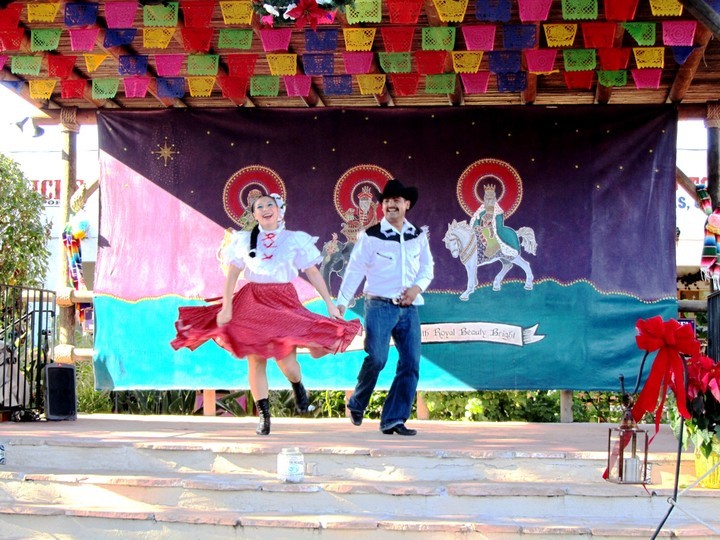8 Stereotypes Latinos Are Absolutely Tired of Hearing

Latinos are usually stereotyped as illegal, criminal, threatening, family-oriented, hard-working, patriotic. The contradiction of these words clearly demonstrates the inconsistency of how people know Latinos. No one surely knows Latinos as much as they do. That is why they are always offended how marketing industries capitalize on this misrepresentation in music, food, holidays and fashion.
Latinos constitute 17.6 percent of the United States' total population and are considered the nation's largest minority group. However, they are often subject of discrimination. And unsurprisingly, those who always comment negatively about Latinos, whether racist Twitter users or ignorant yet well-meaning colleagues and classmates, are the ones who know nothing about them at all.
Here are some of the most common stereotypes Latinos are tired of hearing:
1. Not all Latinos speak Spanish
While the first-generation migrant Latinos speak fluent Spanish, that's not true for all Latinos. By the second generation, their Spanish usage drops as the use of English rises, and majority of the third generation speak in English. There are also those who speak Spanglish, or give English words Spanish accents.
Moreover, not all Latinos speak Spanish such as Brazilians who speak Portuguese, while Haitians speak Haitian Creole. Additionally, those who come from the hundreds of indigenous groups across Latin America and the Caribbean bring with them their own native languages.
Most importantly, not because one is Latino doesn't mean he or she speaks Latin.
2. Speaking English with an accent doesn't make Latinos unintelligent
Studies show that people who speak two or more languages are actually smarter than those who don't. Moreover, an article by the New York Times suggests being bilingual improves the brain's cognitive function, so bilinguals are better at ignoring distraction and staying focused so they can quickly solve problems and perform difficult tasks.
3. Latinos don't all look the same
Do you know that Latinos are one of the most racially diverse ethnic groups in the world? According to Washington Post, despite media portrayals of Latinas being tan with curly hair and curvy bodies, Latinos can also be black with Afro-textured hair, brown, indigenous, Asian, and even light-skinned.
4. Not all Afro-Latinos come from the Dominican Republic
One of the largest African-descended populations outside of Africa live in Latin America with Brazil, as the second blackest country in the world. Contrary to popular belief, Afro-Latinos don't just live in Dominican Republic. In fact, there are millions who live across Colombia, Puerto Rico, Cuba, Venezuela, and Peru.
5. Their culture are as diverse as their hues
Latinos love dancing to Latin music and eating Latin food, but their dances, rhythms and dishes are all as different as the cultures they belong to. When you generalize different Latin American descent, you erase the major political, economic, racial and cultural differences of each country.
6. Most Latinos aren't undocumented
Popular media often associates Latino community to issues of crime, immigration and illegal border-crossing. According to NBC, more than 30 percent of non-Latinos believe most Latinos are undocumented when in fact, only 17 percent of them are and the statistics is actually dropping.
7. Puerto Ricans and U.S.-born Latinos are, in fact, U.S. citizens
Any child born in the United States is automatically a U.S. citizen, regardless of their last name or their parent's nationality. And while Puerto Rico is not a U.S. state, all Puerto Ricans, whether they were born in the continental U.S. or on the island, are U.S. citizens as stipulated in the 1917 Jones Act.
8. Latinos not "welfare-sucking Hispanics"
A 2012 poll released by the National Hispanic Media Coalition shows that 51 percent of non-Latinos describe Latinos as "welfare recipients." Many of them may be struggling to make ends meet and benefit from their right to the Supplemental Nutrition Assistance Program (SNAP), they are not the "welfare queens" or "welfare-sucking Hispanics". In fact, According to Washington Post, the majority of SNAP recipients are actually white.
These Latino stereotypes may have been addressed but more importantly, no matter who you are or where you come from, it is never okay to discriminate people. It pays to be kind.
Subscribe to Latin Post!
Sign up for our free newsletter for the Latest coverage!
© 2026 Latin Post. All rights reserved. Do not reproduce without permission.













